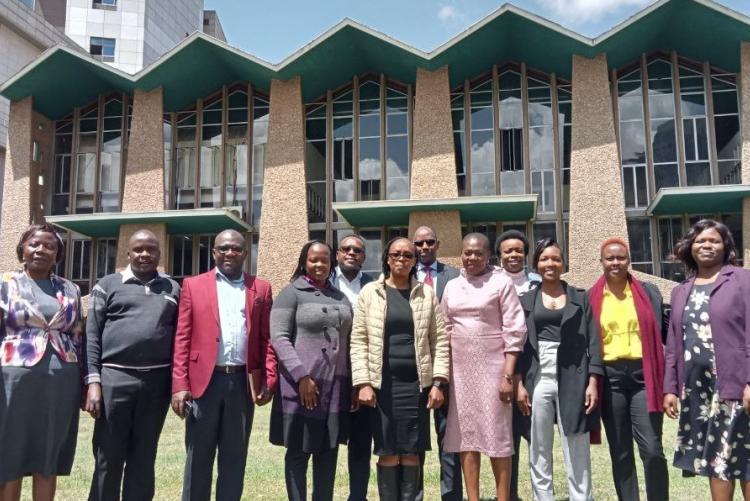It is one of those rare occasions when doctoral students presents their research findings to the members of the public, her classmates and the academia.
Speaking during her PhD thesis, Farida Karoney, former Lands Cabinet Secretary looked into the disruptive ways that media has been challenged in the way they do business.
“When I was a young journalist, Kenyans would get news via the radio or television. That is not the case anymore. The media has changed. In fact there are some Kenyans with a bigger following on social media than some media companies. They have more clients than some of our media stations’, she observed.
Farida noted that the media is under siege, with virtually everyone being a competitor to the media owners and virtually everyone is a journalist in their own rights. The concept now known as citizen journalism where everyone can take photos and capture videos as events happen near them.
“Seated right here, you can watch news from Youtube and Twitter. Media owners operate in an environment that is very dynamic and media as a business is facing disruption”, she said.
To survive the disruptive environment, Farida dug deep into literature and concluded that the management has to embrace strategic agility, flexibility and adaptability. They also need to approach the market differently from the media of the last 100 decades where technology was not mainstream. The study recommended approaching the training of journalists differently to help them adopt to the changing times. She also observed that Kenya are not necessarily waiting for news from the television channels, but also entertainment.
Linus Kaikai from Citizen Television, outlined some of the challenges they face as journalists, where truth is no longer the truth, but depends on the audience. “Truth is also variable and ethics assaulted. Disruptions is real. We wake us and we dont know where disruptions will come from,” he said.

